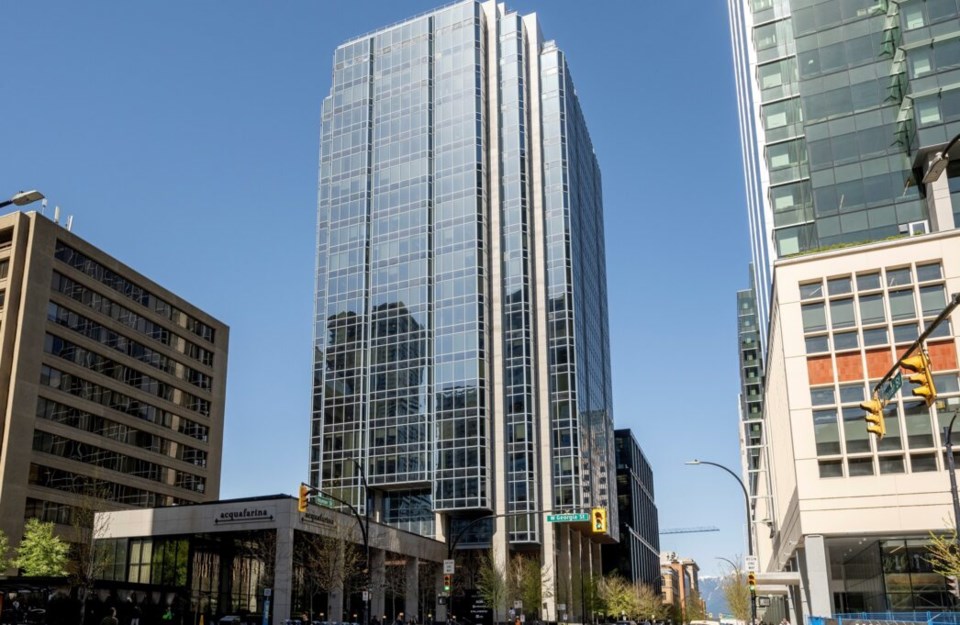Higher cap rates are creating a window for foreign investors to re-enter the Â鶹´«Ã½Ó³»office market, according to a new analysis by commercial real estate advisory firm Avison Young (Canada) Ltd.
Cap rates, which measure the relationship between a property’s income and the price it has sold for on the open market, have moved slightly higher, enticing some foreign buyers off the sidelines.
“What has been a consistent theme across markets are the upward pressure on cap rates to bring buyers to the table, a hyper-focus on occupancy and building quality, and the headwind posed to deals by financing and non-stabilized incomes,” said Avison Young’s third-quarter 2024 report, released Wednesday, on Canadian cap rate and investment trends.
Until recently, the most active office buyers in Â鶹´«Ã½Ó³»have been Canadian private investors, due to an environment shaped by high interest rates, work-from-home policies and a softer investment climate. However, institutional and foreign investors may be gearing up to re-enter Â鶹´«Ã½Ó³»in a bold way, said Michael Emmott, principal of Avison Young’s capital markets group in Vancouver.
He pointed to recent transactions such as the sale of two downtown towers by Oxford Properties Group Inc. and Canada Pension Plan Investment Board to Germany’s Deka-Gruppe for $300 million, as well as the sale of a Mount Pleasant office building by Westbank Corp. to San Francisco-based Spear Street Capital for $115 million.
“I think there’s a window here,” said Emmott. “Â鶹´«Ã½Ó³»is a market that has traditionally posed some barriers to entry for foreign buyers. Cap rates for the last 10-15 years have been quite low, and not as attractive compared to foreign markets. However, straight-up office has been attractive, and even during COVID vacancy rates were pretty low. With cap rates being a little higher due to some locals being disenchanted with the office market, there’s a window for foreign investors.”
Cap rates are a measure of the returns that buyers can get on their investments. When cap rates were lower, for example around 3.5 to four per cent before COVID, foreign buyers would compare that to their own domestic markets where they could get six to eight per cent, making investing abroad a less attractive proposition.
Matthew McWatters, Avison Young's principal who leads valuation for Canada, said interest rate decreases by the Bank of Canada amid lower inflation should now make office investments more attractive to foreign buyers, particularly as bid-ask spreads narrow. This metric measures the difference between the bid and ask prices for assets. Combined with the falling cost of capital, he expects renewed optimism.
“Typically with foreign buyers, you’re going to see they are underwriting that – it could be Europe or the Middle East, for example, so they’re going to look at lower-risk assets when they are entering these foreign markets,” said McWatters. “Having a strong office market like Â鶹´«Ã½Ó³»will give them more confidence in deploying their capital.”
He said, anecdotally, the number of investors who have capital to deploy has increased since Labour Day.
“There’s some other big players who are looking to get back in the game. One of the delays was the bid-ask spread. The gap was just so wide it didn’t make sense,” McWatters said.
“Institutional owners can be patient when the market is challenging. Now, the spread has improved. Given the cost of capital, I see renewed optimism in Q4 heading into 2025.”
According to Avison Young’s most recent office cap rate survey, cap rates averaged between six and seven per cent for downtown and suburban Class A and B assets.
Looking ahead, Emmott said foreign buyers will have an attractive investment window for the next nine to 12 months or so.
“It will continue, I think, until cap rates start to compress again and the returns get lower again. As interest rates go down, and as faith in the office market continues to increase, the local buyers and institutions will come back to this office market. The window during which foreign investment will be prevalent is potentially limited.”



